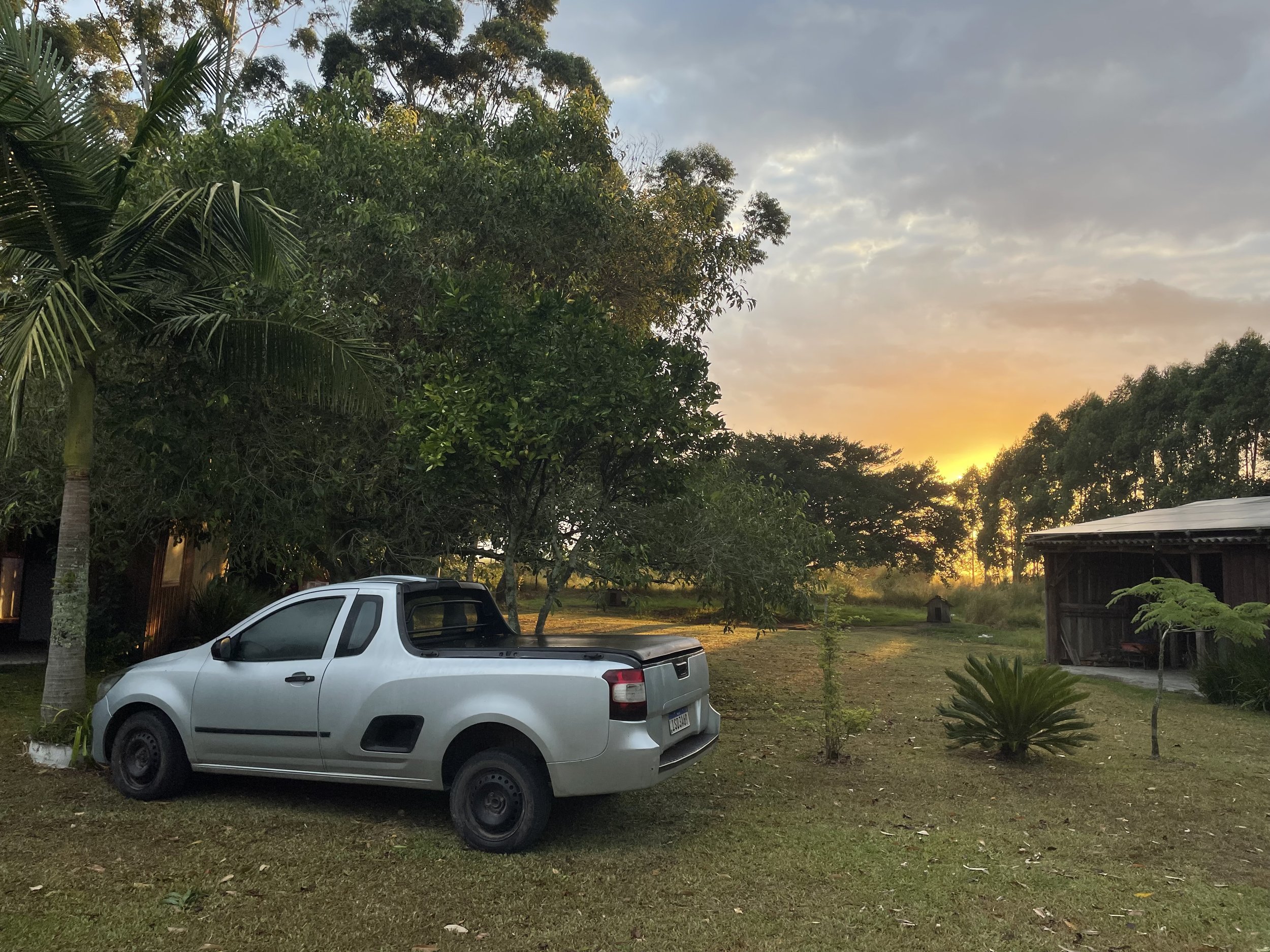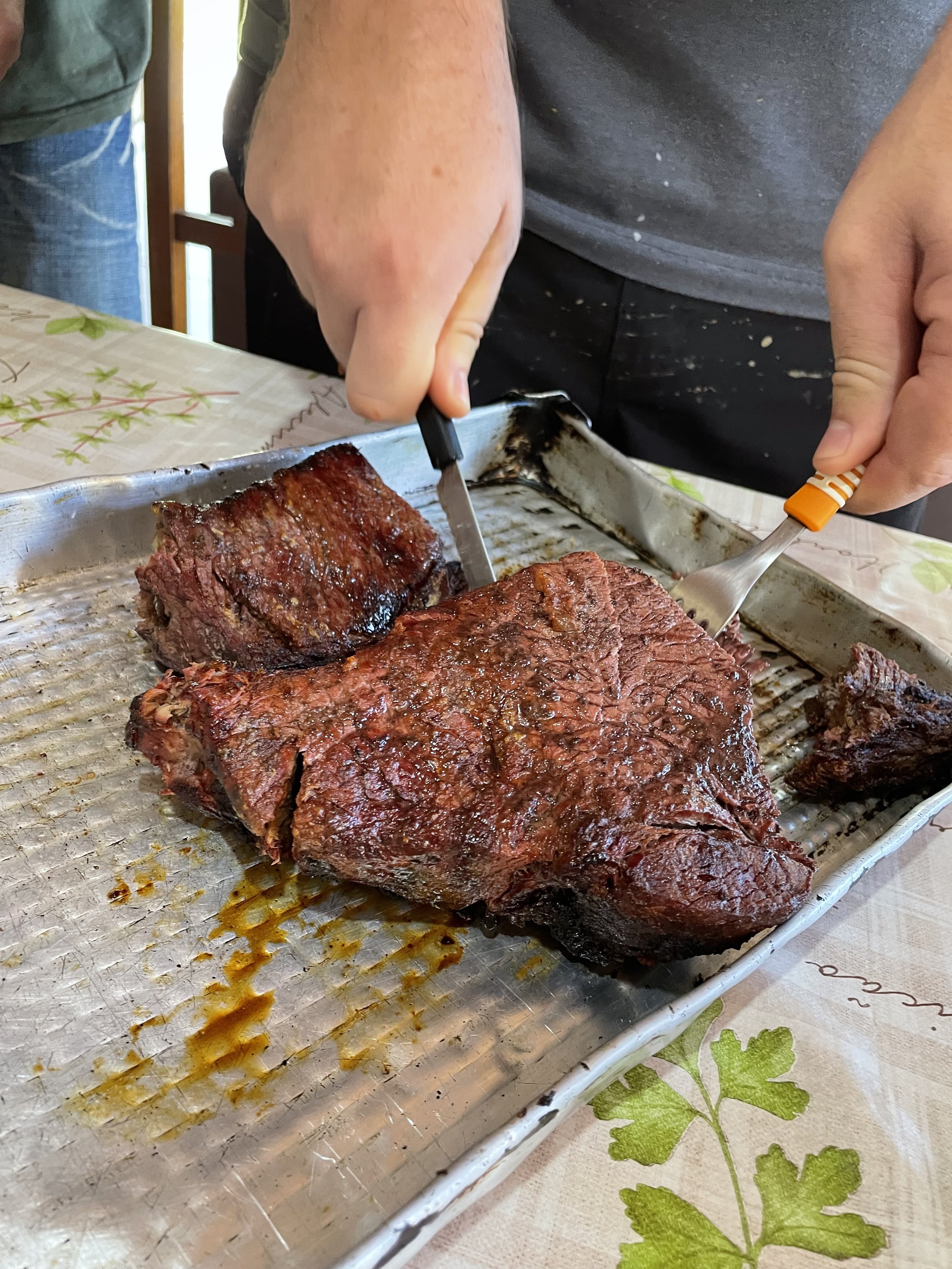If Mr. Miyagi Taught Portuguese [FF Vol. 8]
Hi, everyone. After six weeks away, I finally have access to writing once again. Shortly after sending the last edition of Ferg’s Focus, my computer screen officially breathed its final breath and effectively threw a spanner in the works of my endeavors. It’s not like it would’ve made much of a difference at the time though—I’ve been busy in Brazil. As normally happens in travel, there’s been a lot of life packed into the last six weeks, and plenty I’d like to share. Better so, I’m now in a place where I can buckle down and put my virtual pen to paper. Let this mark the beginning of a few rapid-fire Ferg’s Focus pieces over the next couple of weeks. Some will be more story-based than others. This is not one of them. You’ve been warned.
Now, please excuse me while I nerd out on languages (again).
Starting Back at Zero
A few months prior, I wrote a short piece detailing the elements I was finding most important in my language-learning journey as I continued to pursue relative Spanish fluency. Since the time of that writing, I spent two additional months working and exploring more Spanish-speaking corners of the world. I was at a level by then where, if I applied myself to practicing each day, I felt confident I could achieve my goal. Whether it was sitting up front in a taxi just to spark a conversation or declining the offer from my barista to speak English with me in favor of a choppier, but more valuable interaction. And, as I put in that initial breakdown of intangible language learning elements (below), with a mixture of discipline and confidence in the face of well-erred phrases at times, I realized my goal of Spanish fluency by the end of 2022.
Ferg’s Focus Vol. 5 (Nov. 17, 2022)
As proud as I am of the accomplishment, I don’t open this section with the details of my success in Spanish to be boastful, but rather to contrast the next phase of my language quest as I approached Brazil and the challenge of learning Portuguese. Before setting off almost six months ago to South America, I had a backlog of roughly 10 years studying Spanish from junior high through university. I’d sat through hours of lecture on verb conjugations, given anxious, verbal presentations on the dichotomy between Spain and its former Latin American colonies, and been taught overly specific vocabulary like words only applicable if I were a child visiting the zoo for the first time.
That all goes to say though, as needless as some of those lessons felt at the time, I entered the world of Spanish with all the necessary puzzle pieces to quickly take up my second language. Forming the neural pathways of a smooth conversation isn’t too difficult after a little while of speaking aloud. On the contrary, other than a month-long Duolingo streak, I walked (literally) into Brazil without any of those puzzle pieces or any idea where to find them. It had been a long time since I started from zero.
Walking form Uruguay to Brazil (Chuí / Chuy)
Arriving in Brazil in my first few days and falling flat on my face in an attempt to merely purchase a bus ticket, I recognized that my original claims surrounding language learning required a disclaimer and further revision. Similar to how advice only applies to someone if it is given within the context of their personal situation and past experiences, I wrote my original piece on language learning from the standpoint of someone with all the tools to speak Spanish (vocabulary, grammar rules, etc.) and really only required some daily practice to glue it all together.
The truth is, in pursuing a new language, we’re all at different levels of mastery at any given time. While confidence, motivation, and discipline will remain at the top of the totem pole when it comes to learning, there’s a certain amount of groundwork to lay before getting the opportunity to put the conversations to the sword. The worst part is that laying said groundwork is boring, especially if you’re teaching yourself. Here’s how I approached it.
The Miyagi Method
Figuring a rural environment would allow me to focus the most, I managed to find a farm stay in Rio Grande do Sul, Brazil just three days after entering the monster nation. Here, I stayed with my host, his mother, and his father on their family farm on the Brazilian pampa, an hour away from any major city. Each day for the next two weeks, my host and I would wake up at daybreak to work on the day’s miscellaneous tasks until about noon, where we would wrap up with lunch before he left me to my own devices for the remainder of the day. The thing was, being on a farm without a car or any other form of company effectively removed many of the normal distractions I’d have in an urban setting. Cut off from any social activity or opportunities to explore a new place, I resorted to the only activity I could really do: studying Portuguese.
It was rocky at first. Without English, communication between my host and me during the first few days was largely non-verbal and heavily relied on excessive pointing. I felt like a five-year-old again, with thoughts circulating in my head, yet trapped behind a lack of capacity to verbalize them. The reality was that even if I knew the words I wanted to say, I still didn’t know how to pronounce the letters. So that’s where I started with my afternoon self-teachings: phonetics. There’s nothing quite so humbling as being an adult writing down how to pronounce the phonetic “di” in a school notebook. From there began my breach into the vocabulary.
Sunrise of the fazenda
Researching the best methods to learn a new language, I synthesized strategies from both Nathaniel Drew and Tim Ferriss to form my own style for learning Portuguese. It’s said that in any given language, the 10% most commonly used words account for over 50% of daily conversations. It seemed apparent that, if I could learn those top 10% of words in Portuguese, it would be a good start down the long road of mastering the language. From there, would come how to conjugate a verb depending on the subject, and then the colloquial words and phrases that may not translate directly into other languages.
Each afternoon was the same as I’d sit down in front of my half-open laptop screen: Copy down new words around a particular subject. Copy down new verbs related to the same subject. Learn how to conjugate them. Read back over it all again once finished. From there, I’d have dinner with my host family and purposefully try to use the new words and forms of verbs in hopes of practice. The next morning, I’d look back over my writings one more time and head out of my quarters, bearing in mind what I wanted to practice with my host that day.
Dinner is served—Churrasco (Gaucho-style)
Life on the farm was nothing glamorous. In fact, I was spectacularly bored for large stretches every day. There wasn’t much to do following work except read a bit, go on a run, and study. The work itself wasn’t anything special either. But it was an opportunity for me to practice what I had taught myself the afternoon prior by speaking with my host.
The moment you realize you’ve flown halfway across the world to cut someone else’s lawn…
I felt like the Karate Kid. For each menial task I did, I added a piece to my Portuguese alongside it. Feed the cows; practice talking about myself and my family. Sweep the shed; drill past tense by telling a story about my time on the vineyard. Cut the grass; nail down contractions between articles and pronouns. Build the fence; experiment with advanced verb forms by talking about where I’d like to go after the farm. After two weeks of it all, I was somehow speaking Portuguese (albeit choppy) at a conversational level.
Breakfast with the herd
In essence, what I’m trying to say is to go feed some cows if you want to learn a new language.
Out of transparency, I did have two advantages that fast-tracked my tackling of Portuguese. One was that I didn’t have to take time to compile a list of the top 10% words in Portuguese because Nathaniel Drew had already done so. I downloaded his spreadsheet online and used that as my reference for hand-copying my vocabulary. The other advantage was that the grammar of Portuguese, while it was definitely distinct, still followed similar patterns to Spanish.
Instead of expending mental energy distinguishing when to use one past tense over another, I was able to focus more on the actual conjugation of a verb and move on in the conversation. It was in that way that I found studying in Spanish rather than in English helped immensely in arriving at a comfortable, conversational level quicker than I anticipated when I began.
Comfort-food or brain-food?
I’m still nowhere near fluent. I don’t know many of the words I want to say. I’m sure I fail to pronounce things correctly 80% of the time. I make mistakes every time I speak. In fact, the other day I accidentally communicated to someone that I had been dating my friend for the last couple of weeks in Rio de Janeiro rather than just staying on his couch for the duration of Carnaval (ficar vs. ficar). I believe those embarrassing moments to be a quintessential part of growing into any new language though. Frankly, if that’s the cost of eventually getting to a point where I can understand and participate in conversations with a native speaker, then I’ll happily swallow some pride and laugh off the mistakes no matter how much they sting my ego at the time.
Links for Language Learning
I don’t care to take credit for learning a new language without any sort of help. Self-teaching is a hard mountain to climb, but there are resources in every corner of the Internet to leverage for those interested in trying to study/learn a new language on their own. Here are three that helped me:
“From the academic environments of Princeton University (Chinese, Japanese, Korean, Italian) and the Middlebury Language Schools (Japanese), to the disappointing results observed as a curriculum designer at Berlitz International (Japanese, English), I have sought for more than 10 years to answer a simple question: why do most language classes simply not work?” —Tim Ferriss
If you enjoyed this edition, be sure to share it with someone. My goal is to have this newsletter reach those interested in traveling unconventionally and long-term, without requiring much cash. Or, at the very least, be an entertaining narrative of times on the road in South America. Either works for me.
Until next time,









